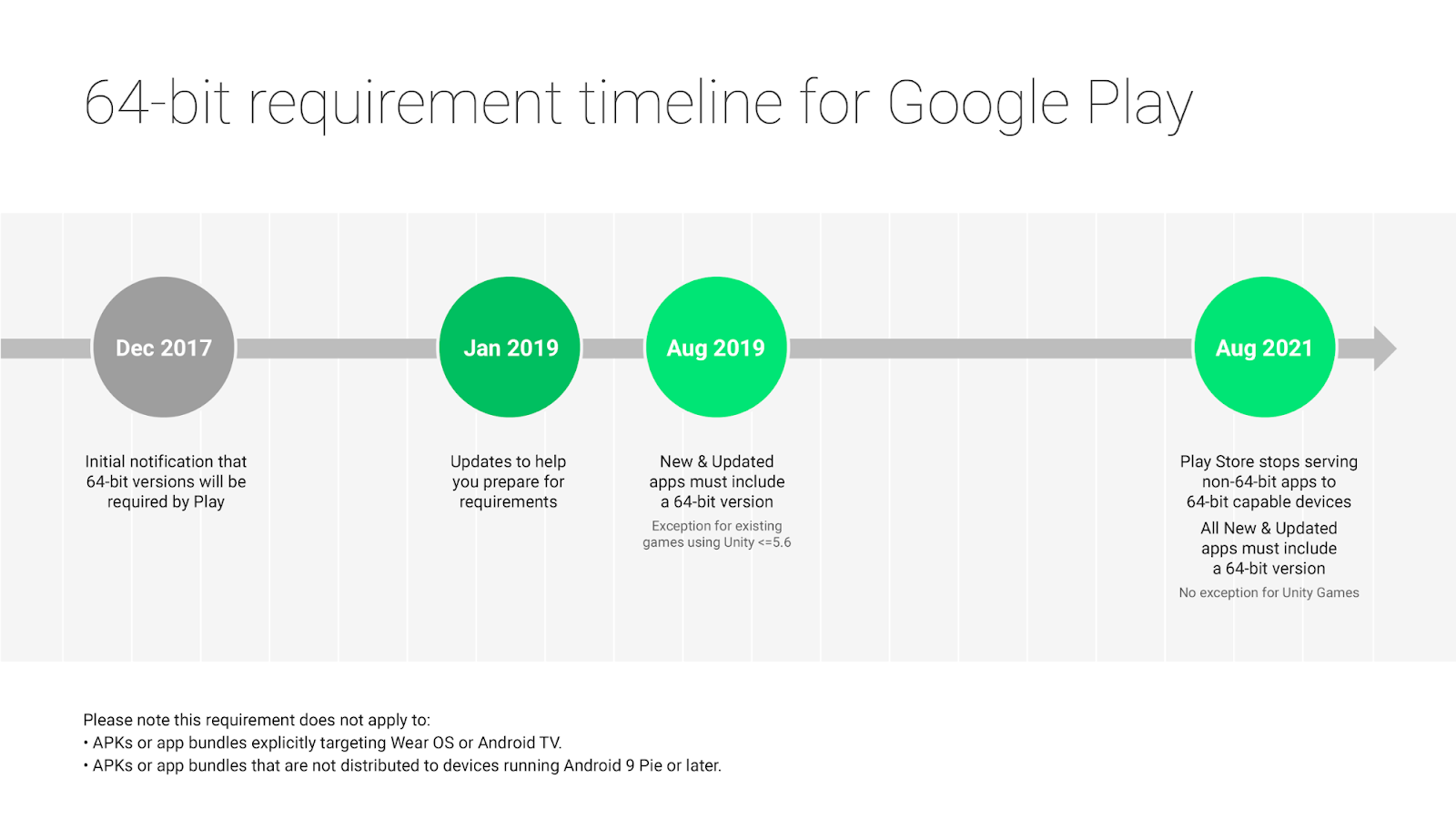Get your apps ready for the 64-bit requirement
15 January 2019
Posted by Vlad Radu, Product Manager, Play and Diana Wong, Product Manager, Android 64-bit CPUs deliver faster, richer experiences for your users. Adding a 64-bit version of your app provides performance improvements, makes way for future innovation, and sets you up for devices with 64-bit only hardware. We want to help you get ready and know you need time to plan. We’ve supported 64-bit CPUs since Android 5.0 Lollipop and in 2017 we first
announced that apps using native code must provide a 64-bit version (in addition to the 32-bit version). Today we’re providing more detailed information and timelines to make it as easy as possible to transition in 2019.
The 64-bit requirement: what it means for developers
Starting
August 1, 2019:
- All new apps and app updates that include native code are required to provide 64-bit versions in addition to 32-bit versions when publishing to Google Play.
- Extension: Google Play will continue to accept 32-bit only updates to existing games that use Unity 5.6 or older until August 2021.
Starting
August 1, 2021:
- Google Play will stop serving apps without 64-bit versions on 64-bit capable devices, meaning they will no longer be available in the Play Store on those devices.
- This will include games built with Unity 5.6 or older.
The requirement does not apply to:
- APKs or app bundles explicitly targeting Wear OS or Android TV, which are form factors that do not currently support 64-bit code.
- APKs or app bundles that are not distributed to devices running Android 9 Pie or later.
We are not making changes to our policy on 32-bit support. Play will continue to deliver apps to 32-bit devices. This requirement means that apps with 32-bit native code will need to have an additional 64-bit version as well.
 Preparing for the 64-bit requirement
Preparing for the 64-bit requirement
We anticipate that for most developers, the move to 64-bit should be straightforward. Many apps are written entirely in non-native code (e.g. the Java programming language or Kotlin) and do not need code changes.
All developers: Here is an overview of the steps you will need to take in order to become 64-bit compliant. For a more detailed outline of this process refer to our in-depth
documentation.
- Inspect your APK or app bundle for native code. You can check for .so files using APK Analyzer. Identify whether they are built from your own code or are imported by an SDK or library that you are using. If you do not have any .so files in your APK, you are already 64-bit compliant.

